Top ZK Rollup Projects in 2024 - Token Metrics Moon Awards
.png)
Welcome to the Token Metrics Moon Awards, a prestigious cryptocurrency industry accolade that recognizes platforms, projects, and initiatives that have significantly impacted the industry. The latest addition to the Moon Awards is the Top ZK Rollup in 2024.
Selection Process
At Token Metrics, we emphasize our audience, considering them the foundation of our operations. Our selection process is firmly rooted in engaging with the community, ensuring that our awards' results authentically reflect crypto enthusiasts' sentiments and experiences.
Through engagement with our community members, we have compiled a comprehensive list of the Top ZK Rollup in 2024 based on extensive survey data and user votes.
This guide aims to explore ZK Rollups in-depth, highlighting their advantages and considerations, alongside an overview of top ZK rollup projects slated to dominate in 2024.
What are ZK Rollups?
ZK Rollup is a transformative layer-2 scaling solution that enhances blockchain scalability and efficiency by moving computation and state storage off the main chain. They operate by:
- Bundling Transactions: Transactions are aggregated into batches and processed off-chain. This method significantly reduces the on-chain footprint, lowering gas costs and increasing throughput.
- Zero-Knowledge Proofs: A core feature of ZK Rollups is using zero-knowledge proofs to validate transactions off-chain before finalizing them on the main chain. This ensures that all transactions are legitimate without revealing any underlying data, thus preserving privacy and security.
- On-Chain Data Storage: ZK Rollups store transaction data on the layer-1 network while the computation is done off-chain. This approach maintains the integrity and security of the blockchain, leveraging the robustness of the base-layer network for settlement purposes.
Operators play a crucial role in managing these rollups, which can be either a centralized sequencer or a decentralized proof-of-stake system with validators.
This flexibility allows for different governance models, further enhancing the adaptability of ZK Rollups to various blockchain ecosystems.
Moreover, advancements like the zero-knowledge EVM (zkEVM) are pushing the boundaries of what's possible, enabling more complex computations and applications to benefit from the scalability and efficiency of ZK Rollups.
List of Top ZK Rollups in 2024
As the blockchain ecosystem evolves, ZK rollup projects are at the forefront of addressing scalability and efficiency challenges.
Here's a closer look at some of the top ZK rollup projects set to make significant impacts in 2024:

1. zkSync
In the Moon Awards survey, zkSync secured the top position with 49.8% of the total votes.
zkSync Era emerges as a leading ZK rollup, revolutionizing Ethereum transactions through scalable, low-cost solutions. Its design closely mirrors Ethereum, ensuring a seamless experience for developers and users. Here's a breakdown of its standout features:
Compatibility and User Experience:
- Smart contracts in Solidity/Vyper are fully compatible with EVM.
- Supports familiar Ethereum clients and wallets like Metamask and TrustWallet.
- Web3 API compatibility, easing the transition for Ethereum developers.
Innovative Features and Security:
- Transitioning towards decentralization for enhanced security.
- Native account abstraction and support for ECDSA signatures.
- zkPorter mode offers a balance between high security and reduced fees.
Development and Transaction Efficiency:
- Instant confirmations and rapid finality on L1.
- Extremely low transaction fees, payable with ERC20 tokens.
- Hardhat plugin and custom compilers (zksolc and zkvyper) for streamlined smart contract development.
zkSync Era stands out for its Ethereum-like environment, decentralization roadmap, and innovative features like zkPorter, making it a top choice for those seeking efficient, secure blockchain transactions.
2. Polygon zkEVM
In the Moon Awards survey, Polygon zkEVM secured the 2nd position with 26.7% of the total votes.
Polygon zkEVM emerges as a beacon in the landscape of zk rollup projects, heralding a new era of scalability and security for Ethereum.
This open-source, EVM-equivalent zk-Rollup is not just live but thriving, powered by the cutting-edge Polygon Zero technology. Here's a closer look at its defining attributes:
Key Features:
- EVM Equivalence: Maintains full compatibility with Ethereum, allowing existing smart contracts, developer tools, and wallets to operate without any modifications.
- Low Cost: Leverages ZK proofs to drastically reduce transaction costs, making it an economical choice for developers and users.
- High Performance: Achieves fast network finality and employs the world's fastest ZK-proof technology for swift and efficient transaction processing.
Security and Scalability:
- Inherits Ethereum's robust security at Layer 2, enhanced by L2 batching capabilities.
- Utilizes ZK proofs to ensure the validity of transactions, safeguarding user funds against potential threats.
Polygon zkEVM Stats and Resources:
- Metrics such as average gas fees, total value locked (TVL), and active wallets are readily available, offering insights into its growing ecosystem.
- Developers and enthusiasts can access many resources, including technical documentation, GitHub repositories, and educational materials from Polygon University.
Polygon zkEVM stands out for its technical prowess and commitment to a secure, scalable, and developer-friendly environment, setting a new standard for zk rollup projects.
3. Starknet
In the Moon Awards survey, Starknet secured the 3rd position with 12% of the total votes.
Starknet, a prominent player in the ZK rollup arena, has consistently demonstrated its commitment to enhancing Ethereum's scalability and efficiency.
Notably, Starknet was EIP-4844 ready from the get-go, swiftly enabling the blob function post-Dencun upgrade, dramatically lowering transaction fees to an average of $0.017. This move underscores Starknet's agility and foresight in adapting to Ethereum's evolving landscape.
Innovations and Upgrades:
- V0.13.2: Introduces concurrent execution of independent transactions, boosting throughput and minimizing latency.
- V0.13.3: Incorporates Cairo Native project by LambdaClass into the Starknet sequencer, facilitating direct execution on x86 architecture. This accelerates transaction execution significantly.
- Data Availability (DA) Enhancements: These upgrades enable hybrid DA on Starknet, allowing dApps to store data directly on Starknet rather than Ethereum. This shift reduces end-user transaction costs and optimizes the batching of L1 costs.
Starknet's roadmap reveals a strategic focus on reducing fees and enhancing network performance. Also, Starknet's exploration into Data Availability Compression and the introduction of parallel transaction functionality highlight its dedication to achieving a scalable, efficient, and user-friendly platform.
These advancements are expected to position Starknet as a powerhouse in zk rollup technology, significantly outpacing Ethereum's computational capabilities by the end of 2024.
4. Linea
In the Moon Awards survey, Linea secured the 4th position with 6.3% of the total votes.
Developed by Consensys, Linea is a ZK-Rollup designed to significantly enhance Ethereum's scalability by processing transactions off-chain.
This innovative approach reduces the data each transaction records on-chain and employs zero-knowledge proofs (ZKPs) to verify the validity of transactions without revealing their contents. Here's a closer look at Linea's key features:
EVM Compatibility & User Experience:
- Fully EVM-compatible, allowing developers to use the same code for Linea's Layer-2 as they would for Ethereum's Layer-1.
- Integration with popular Web3 products such as MetaMask and Infura, ensuring a seamless user experience akin to Ethereum's mainnet but with faster speeds and significantly lower transaction costs.
Scalability & Security Enhancements:
- Utilizes lattice-based cryptography for ZKPs, believed to resist quantum computer attacks, providing a secure foundation for transactions.
- Offers instant transaction finality with a multi-prover approach to minimize implementation risks, further securing the network.
Innovative Technology & Community Engagement:
- Features a new outer proof system, Vortex, for fast proof generation and self-recursion, enhancing transaction privacy and efficiency.
- Engages the developer community with initiatives like a major NFT collection launch and a hackathon with prizes up to $50,000, fostering innovation and participation.
Linea's approach to enhancing Ethereum's scalability, security, and user experience positions it as a leading project in ZK Rollup technology, promising a more efficient and scalable blockchain ecosystem.
5. Scroll
In the Moon Awards survey, Scroll secured the 5th position with 3% of the total votes.
Scroll is a pioneering Layer 2 network meticulously crafted by Ethereum developers for their peers, aiming to extend Ethereum's capabilities through cutting-edge zero-knowledge technology and seamless EVM compatibility.
This initiative ensures that existing Ethereum applications can transition to Scroll with minimal friction and at reduced costs, fostering a more efficient blockchain ecosystem. Here's a snapshot of Scroll's standout features:
EVM Compatibility and Ease of Migration:
- Bytecode-level compatibility with Ethereum, ensuring a plug-and-play experience for developers.
- The simplified migration process for Ethereum apps significantly cut down operational costs.
Innovative Zero-Knowledge Proof Technology:
- Utilizes advanced ZK proofs and battle-tested EVM models for enhanced security and reliability.
- Regular audits and a multi-layered security approach underscore its commitment to maintaining a secure network.
Community-Centric Development and Scalability:
- Open development ethos, closely involving the Ethereum community from the outset.
- Plans for decentralized proof and multiple validators to democratize network governance.
- It aims to halve cross-chain costs, support EIP 1559 transaction types, and enable parallel EVM execution for superior scalability.
Scroll's architecture, embracing a settlement, sequencing, and proving layer and the possibility of anyone becoming a roller by staking SCR, its native token, highlights its innovative approach to reducing proving costs and ensuring decentralized network participation.
Conclusion
As the blockchain ecosystem continues to grow and encounter new challenges, the advancements in ZK Rollup technology showcased by projects detailed in this guide present a promising path forward.
Projects like zkSync, Polygon zkEVM, Starknet, Linea, and Scroll have been spotlighted not only for their innovative approach to addressing Ethereum's scalability challenges but also for their contributions to a more efficient, secure, and user-friendly blockchain environment.
Their developments mark a pivotal moment in the evolution of layer-2 solutions, reinforcing the essential role of ZK Rollups in the broader adoption and optimization of blockchain technology.
Disclaimer
The information provided on this website does not constitute investment advice, financial advice, trading advice, or any other advice, and you should not treat any of the website's content as such.
Token Metrics does not recommend buying, selling, or holding any cryptocurrency. Conduct your due diligence and consult your financial advisor before making investment decisions.
Create Your Free Token Metrics Account

.png)




%201.svg)
%201.svg)


%201.svg)



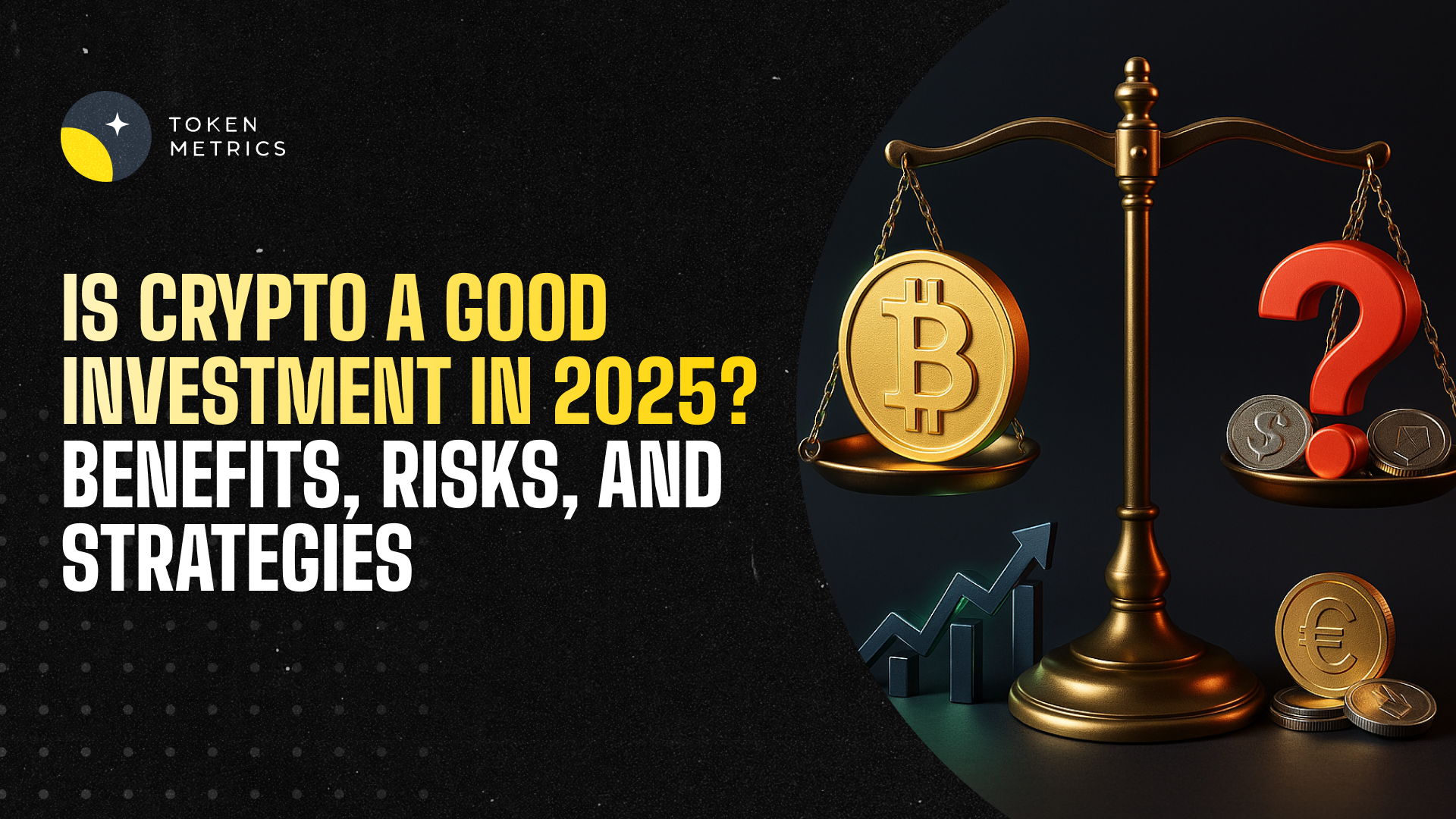


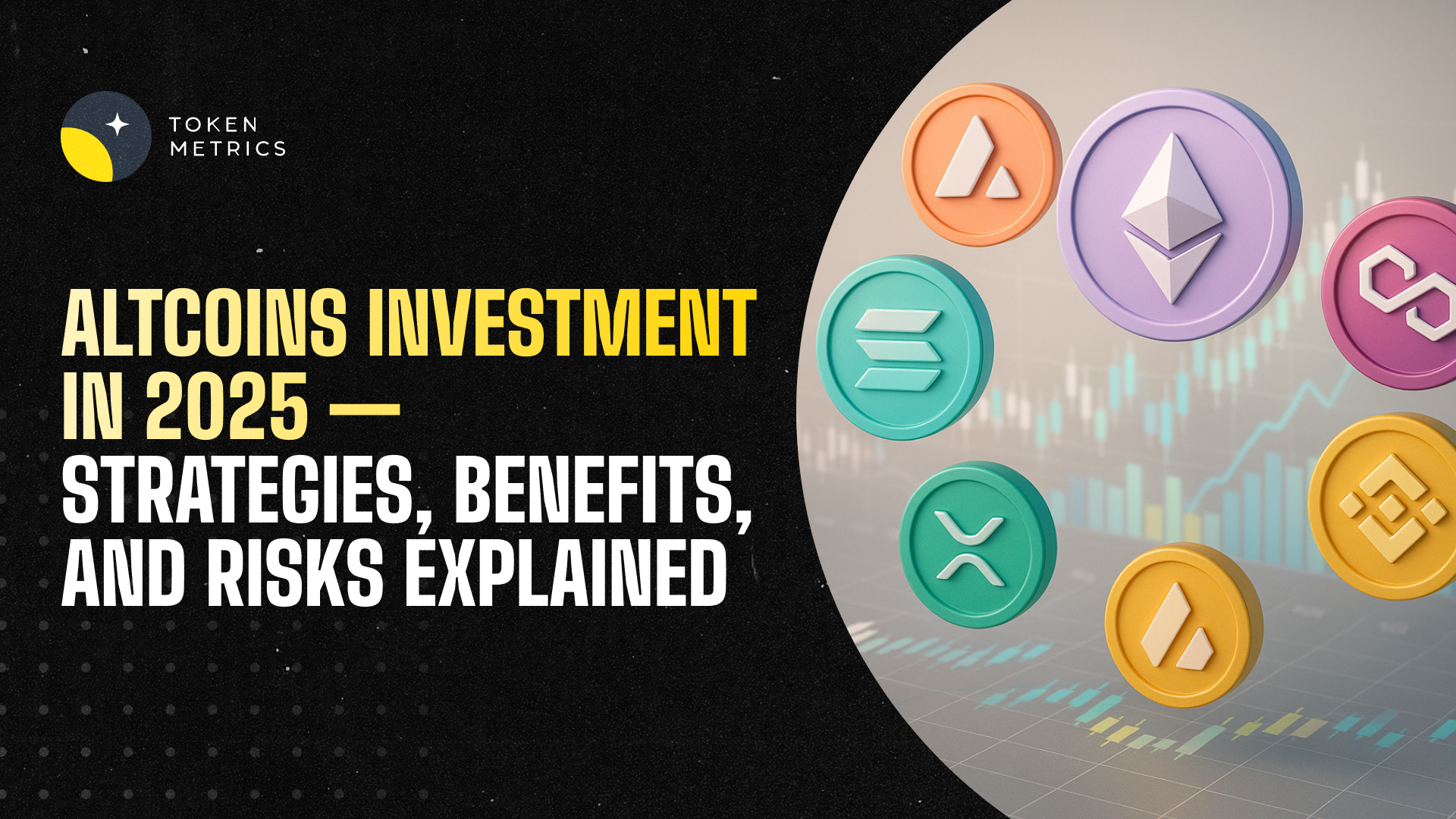
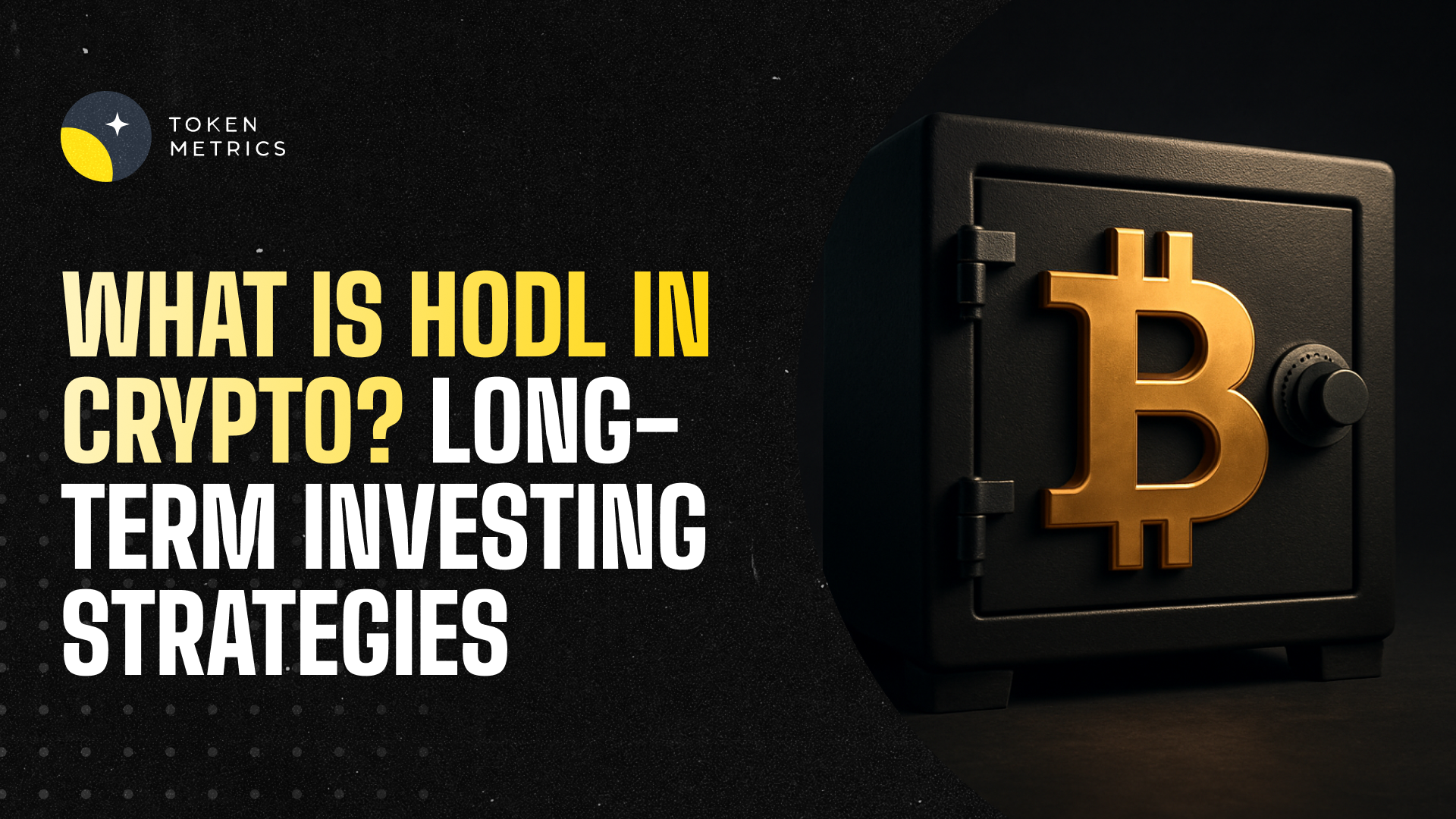
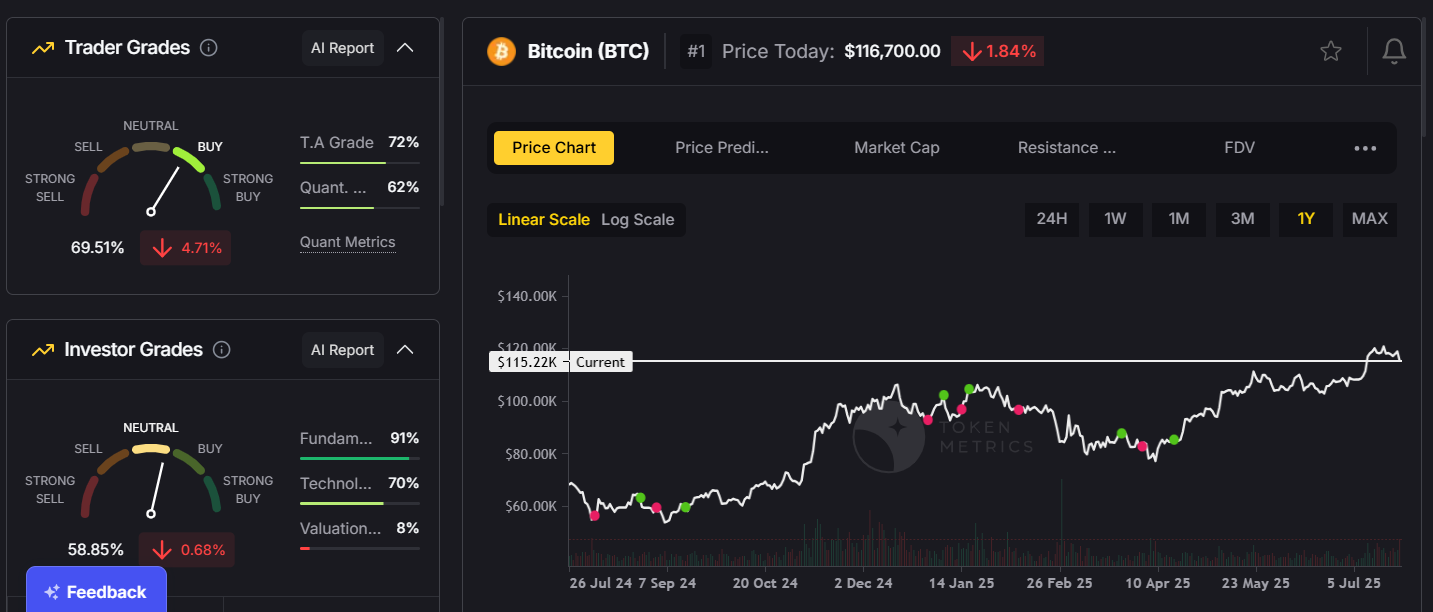
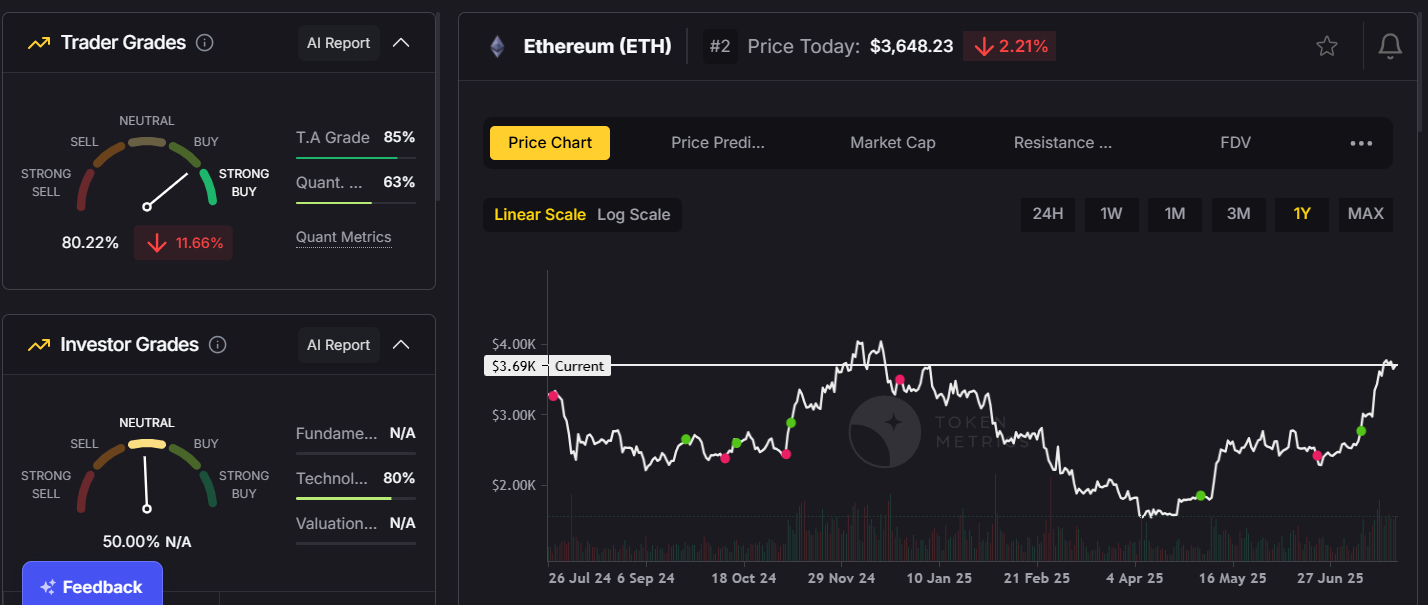
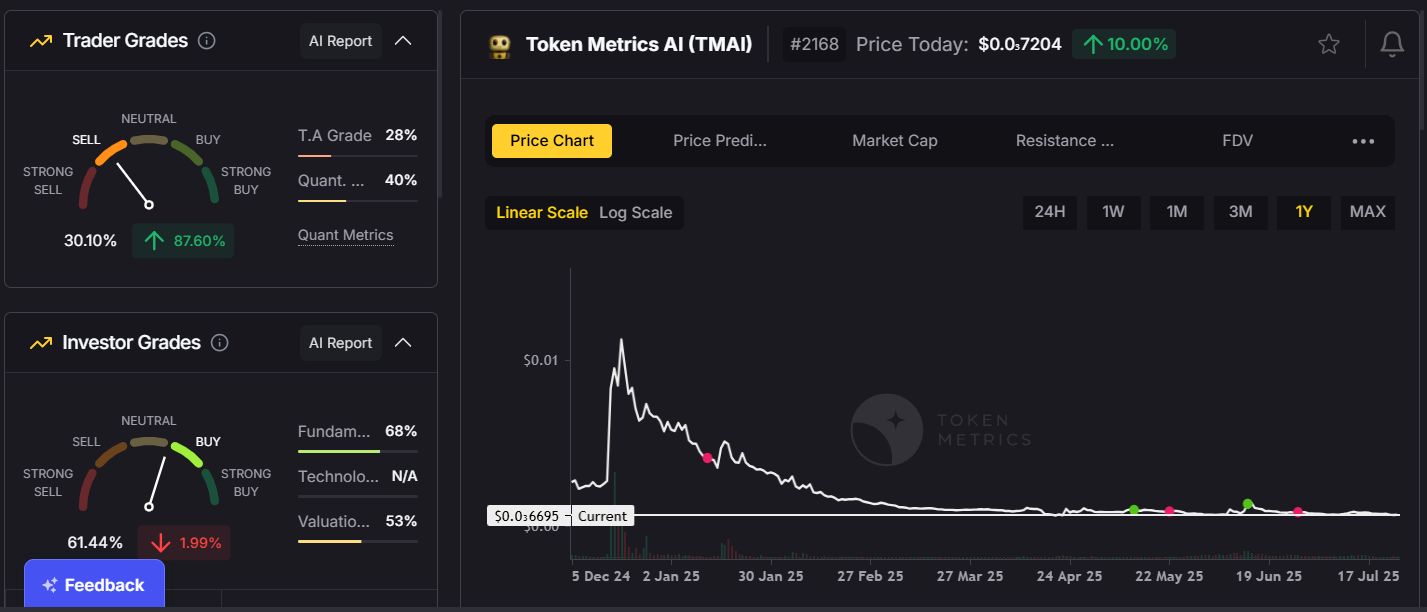
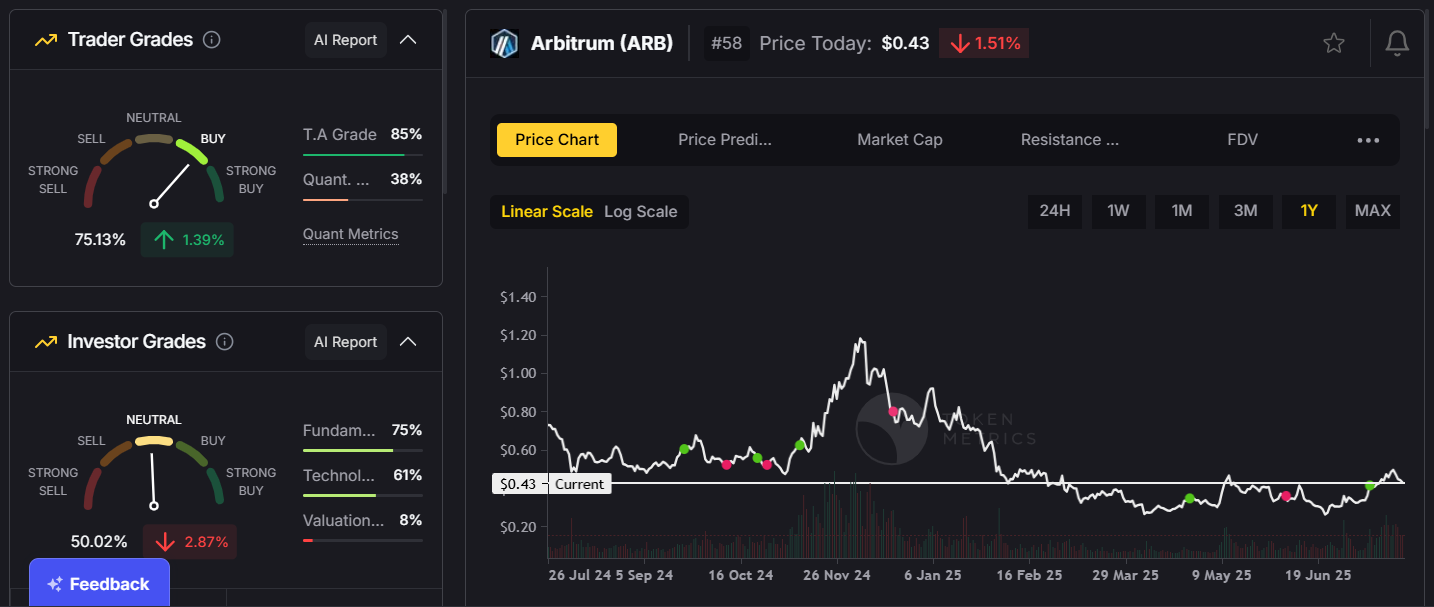




.svg)




.png)